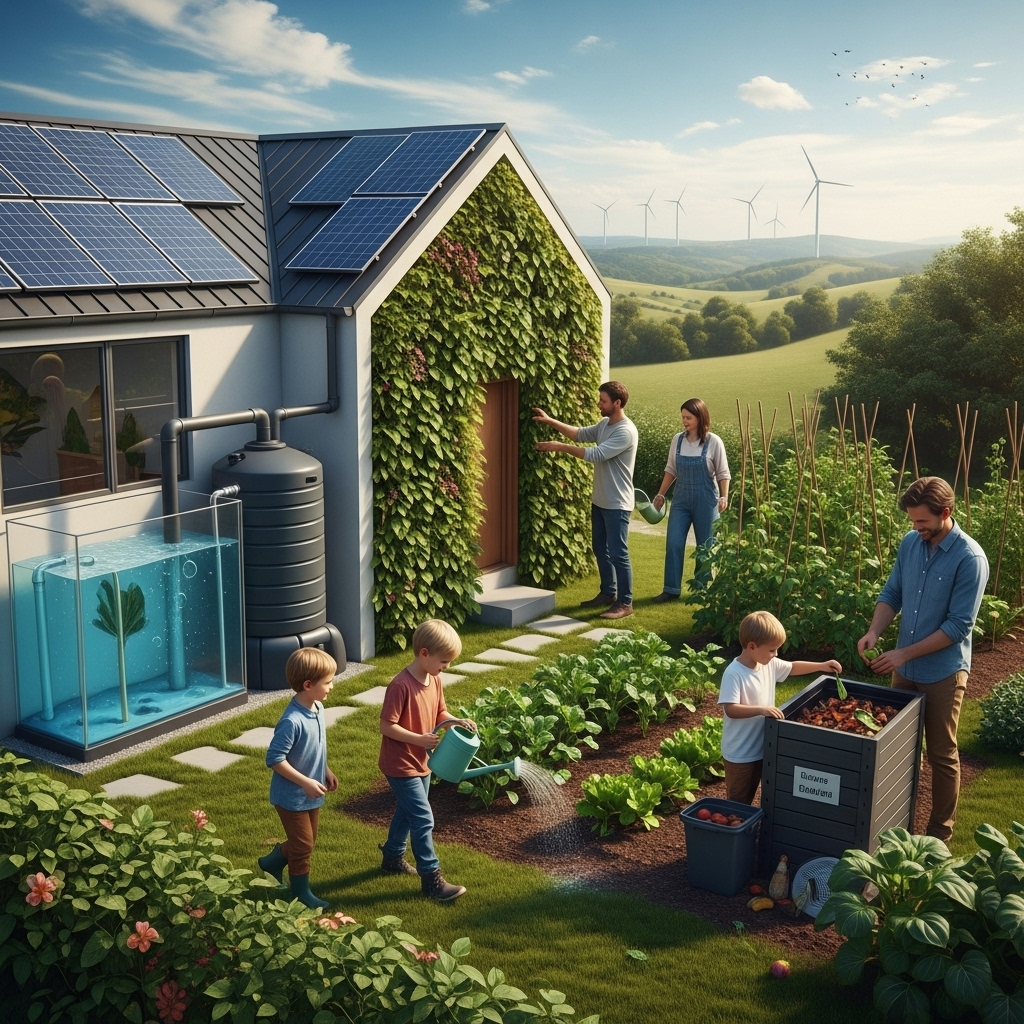
Introduction to Sustainable Living
The world is facing an unprecedented environmental crisis, with climate change, pollution, and waste management being some of the most pressing issues of our time. As individuals, we have the power to make a significant impact by adopting eco-friendly practices and sustainable living habits. The concept of sustainable living is not just a trend, but a necessary step towards creating a greener tomorrow. In this article, we will explore the various ways in which we can revolutionize our daily lives to reduce our carbon footprint and contribute to a more environmentally friendly future.
Understanding the Importance of Sustainability
Sustainability is often misunderstood as a concept that only applies to the environment. However, it encompasses three key aspects: environmental, social, and economic sustainability. Environmental sustainability refers to the conservation of natural resources and the reduction of pollution. Social sustainability focuses on ensuring that our actions do not harm the community or society as a whole. Economic sustainability, on the other hand, involves adopting practices that are financially viable and responsible. By understanding the importance of sustainability, we can make informed decisions that benefit not only the environment but also our communities and economies.
Simple Changes for a Sustainable Lifestyle
Making the transition to a sustainable lifestyle can seem daunting, but it can start with simple changes. For instance, reducing our use of single-use plastics, using public transport or carpooling, and recycling can significantly reduce our carbon footprint. Additionally, making conscious food choices, such as buying locally sourced produce and reducing meat consumption, can also have a positive impact on the environment. By incorporating these small changes into our daily routines, we can set the stage for more significant transformations.
Renewable Energy and Sustainable Technologies
One of the most critical aspects of sustainable living is the adoption of renewable energy sources. Solar and wind power are becoming increasingly accessible and affordable, allowing individuals and businesses to reduce their reliance on fossil fuels. Moreover, advancements in sustainable technologies, such as energy-efficient appliances and green building materials, are making it easier to create environmentally friendly homes and workplaces. For example, smart home devices can help monitor and control energy consumption, while sustainable building materials can reduce waste and improve insulation.
Sustainable Fashion and Consumerism
The fashion industry is one of the largest polluters in the world, with fast fashion being a significant contributor to waste and environmental degradation. Sustainable fashion involves adopting practices such as buying second-hand clothing, investing in timeless pieces, and supporting eco-friendly brands. Moreover, making conscious consumer choices, such as avoiding products with excess packaging and choosing products made from sustainable materials, can also have a significant impact. By reevaluating our consumption habits, we can reduce waste, support environmentally responsible businesses, and promote a more circular economy.
Community Engagement and Education
Creating a sustainable future requires a collective effort, and community engagement is crucial in promoting eco-friendly practices. By participating in local environmental initiatives, supporting eco-friendly businesses, and educating others about the importance of sustainability, we can create a ripple effect that inspires positive change. Education is also key, as it empowers individuals with the knowledge and skills necessary to make informed decisions about their environmental impact. By working together and sharing knowledge, we can build a more sustainable and environmentally conscious community.
Conclusion: Embracing a Greener Tomorrow
In conclusion, revolutionizing eco-friendly living requires a multifaceted approach that involves individual actions, community engagement, and the adoption of sustainable technologies. By understanding the importance of sustainability, making simple changes to our daily habits, and embracing renewable energy and sustainable practices, we can create a significant impact. As we move forward, it is essential to prioritize education, community engagement, and innovation, ensuring that our actions today pave the way for a greener tomorrow. By working together, we can create a future that is not only environmentally sustainable but also socially responsible and economically viable, ultimately ensuring a better world for generations to come.
